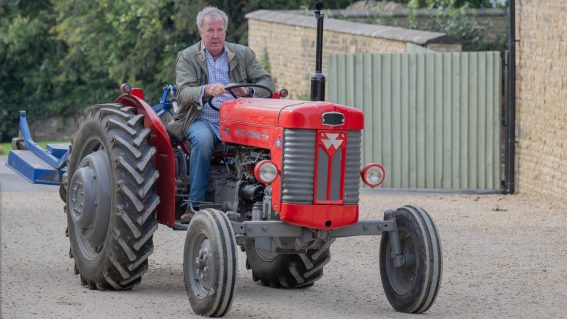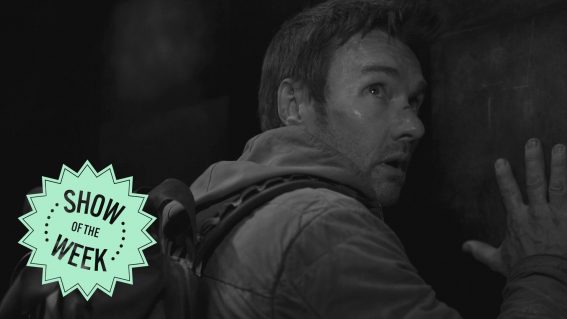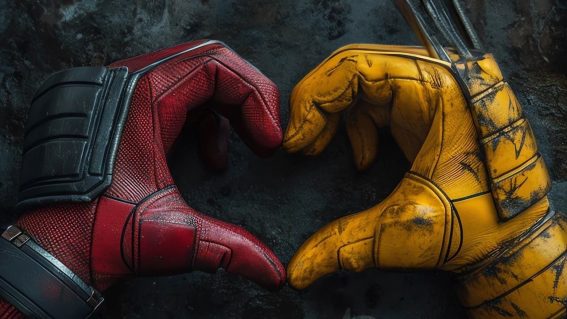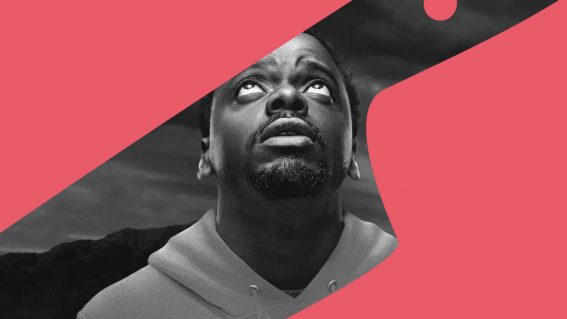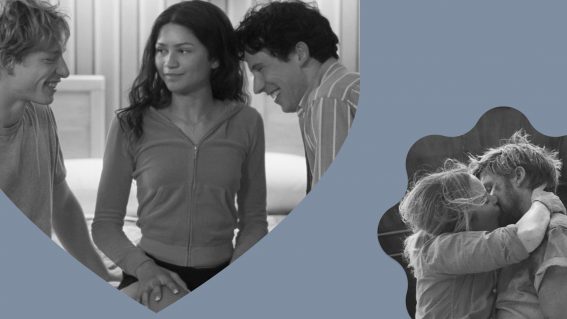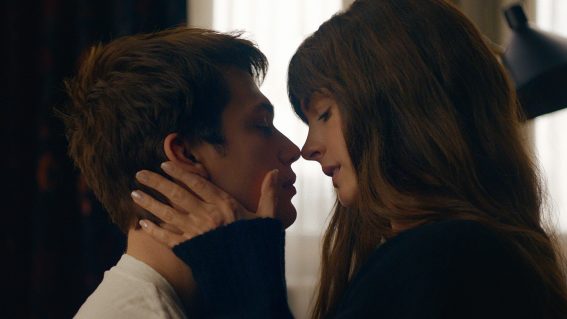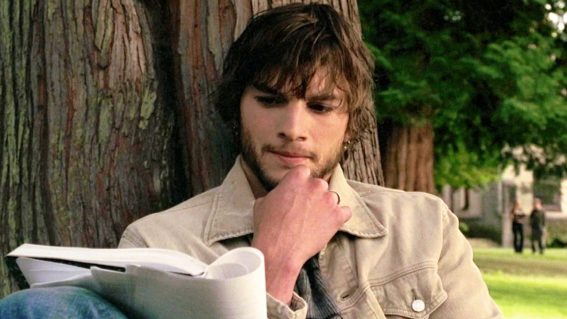The White Lotus returns, for a new season of sizzling satire in Sicily


One of the series highlights of 2021 returns, encouraging you to check back into The White Lotus – streaming on Neon. With a new location, and (mostly) new cast, the show has found fresh targets for its subversive satire, writes Tony Stamp.
In 2020, in an effort to combat pandemic frustration and fatigue, Mike White had an idea: write and direct a TV show that lent itself to lockdown-era production limitations. The resulting series The White Lotus was a surprise hit, a murder mystery(ish) with the lush production values of an HBO budget, which satirised the social mores of people who can afford to stay in Hawaiian resorts—a category that includes White himself.
His is a face that’s vaguely familiar after years of film and TV appearances as supporting characters, but his writing career predates that, beginning in 1998 on Dawson’s Creek, and stretching into the future through work on Despicable Me 4. In between, there was a range of increasingly sharp screenplays, including Brad’s Status, which he also directed, and Enlightened, which he created, wrote, produced, and co-directed.
So The White Lotus being as barbed as it was didn’t come as a surprise, nor did how in tune it was with current cultural tensions—rich dads railing against wokeism to the irritation of their switched-on daughters, tourists oblivious to their impact on the indigenous population, and so on.
Season two begins much like the first: at least one resort guest is found dead, and we flash back a week to see what went down. The action has shifted to Sicily, but the same wealth-specific issues are explored, as we follow several groups of guests who bicker, cross paths, and often make fools of themselves.
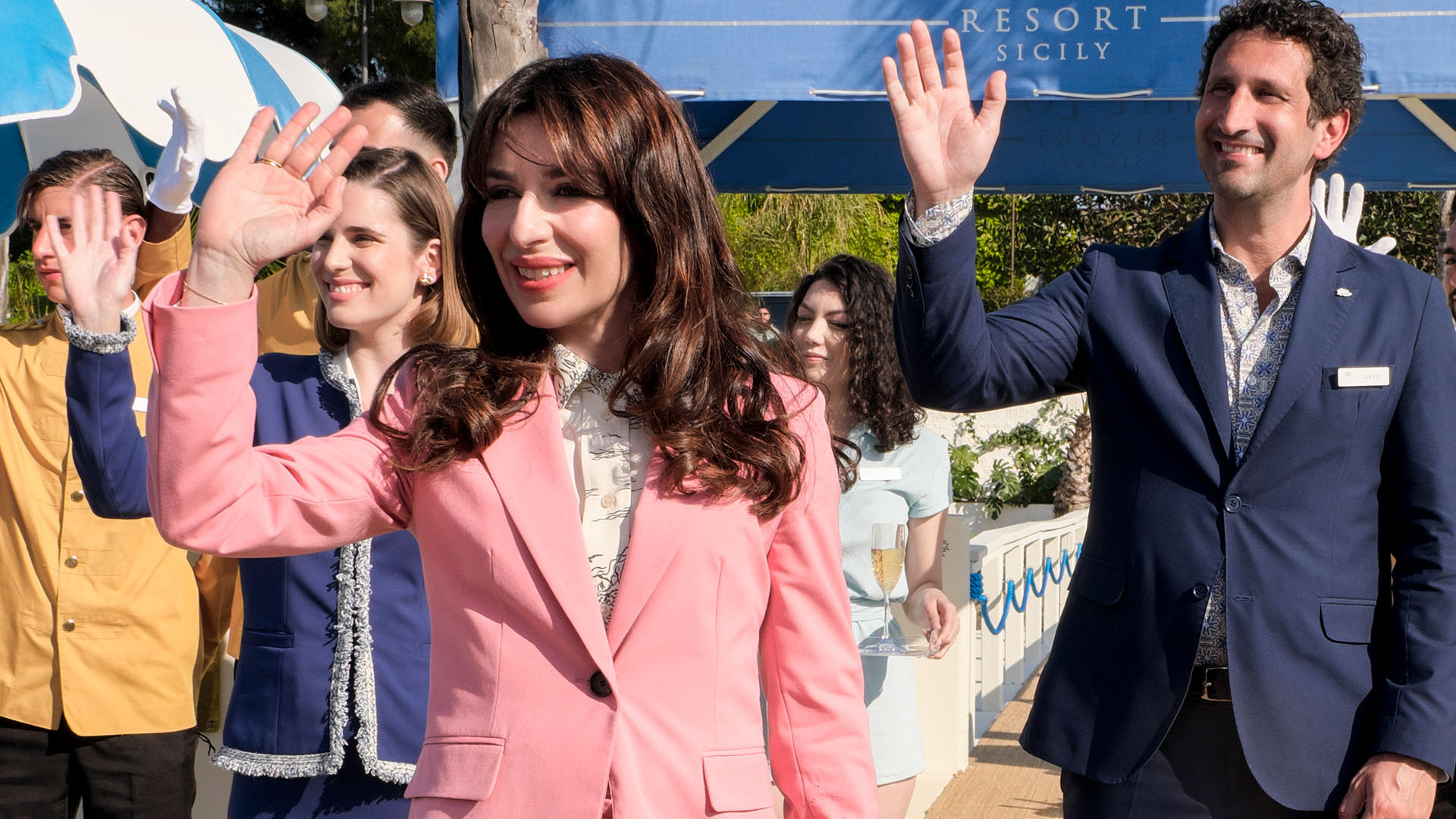
There’s a similar disconnect between those groups and the staff who attend to them. Episode one has a familiar scene where a long-suffering resort manager joins her staff on the dock to welcome the incoming arrivals. Italian actress Sabrina Impacciatore plays Valentina, their frustration at dealing with unreasonable Americans stifled beneath a professional veneer. Pretty soon she’s fielding one man’s request to give two local sex workers access to his hotel room.
The amorous older man is called Dominic, and is played by Sopranos veteran Michael Imperioli. It’s a pleasure to see him back on an HBO show. His 80-year-old father has also joined him on the trip, with F. Murray Abraham bringing the comedy chops he’s been honing over on Mythic Quest to the role. Dominic’s son Albie is also present, but the women of their family are not. Given the arrangement made with the escorts Mia and Lucia on day one of the trip, and a disconnected female voice screaming at Dominic over the phone, it’s easy to figure out why that may be.
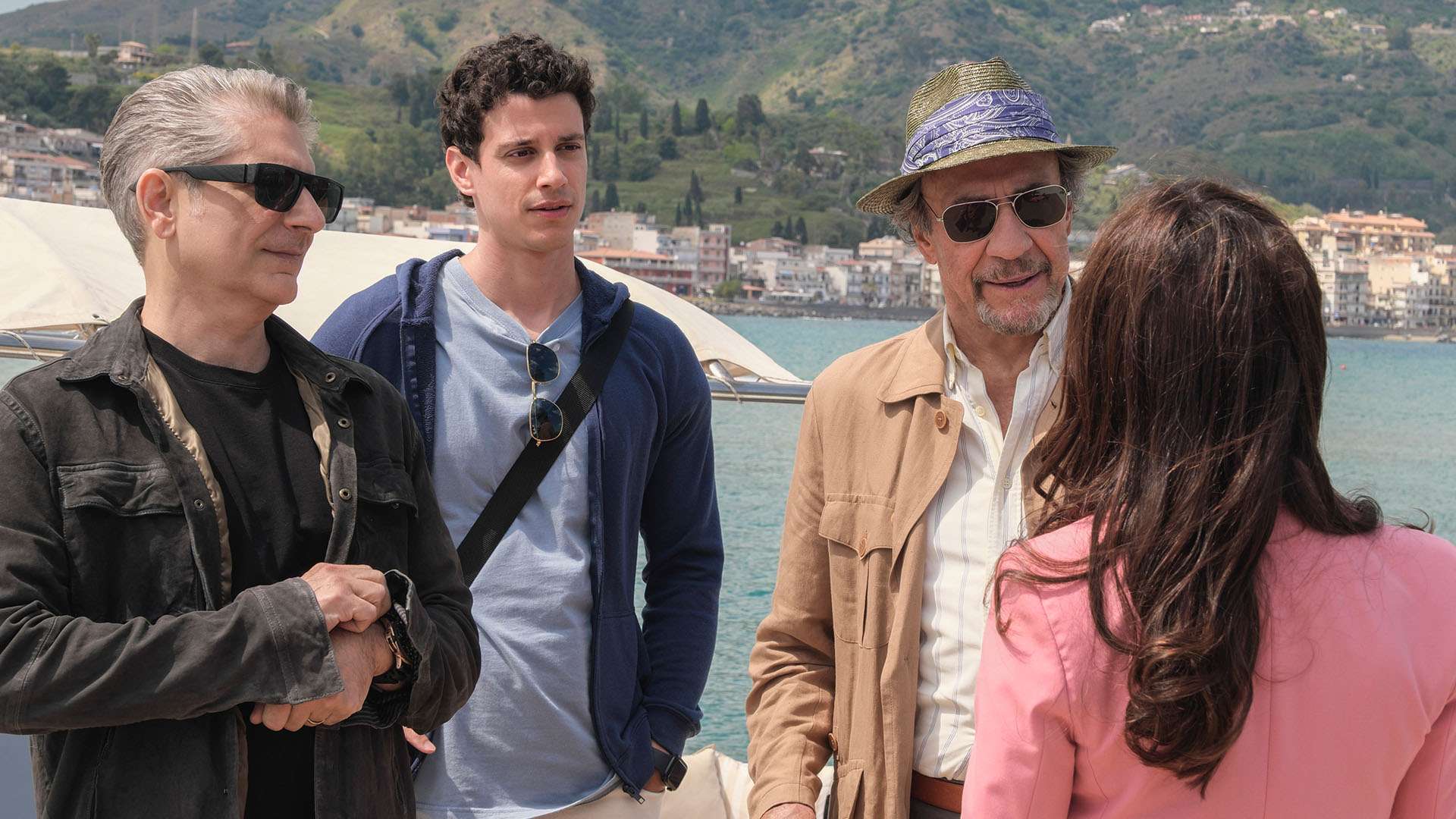
Beatrice Grannò and Simona Tabasco play Mia and Lucia, cruising the resort hoping to pick up business while mulling over what their futures may hold. They’re among the show’s most sympathetic characters.
Likewise, it’s hard not to side with Aubrey Plaza’s Harper Spiller, a slightly stiff lawyer holidaying with her newly rich husband Ethan (Will Sharpe). They’re there with Ethan’s old friend Cameron (Theo James), and his wife Daphne (Meghann Fahy), both oblivious to the way wealth has coloured their lives (one recurring bit has Plaza bemoaning “everything that’s going on in the world” as they look at her blankly).
Plaza’s character is the closest to the one Alexandra Daddario played in season one, an audience surrogate who’s not entirely comfortable with all this luxury. Plaza brings more of an edge, as you’d expect, and her story feels like the one with the most stakes, as hints of sexual impropriety and bullying begin to emanate from Cameron, and he starts to show a bit too much of an interest in her.
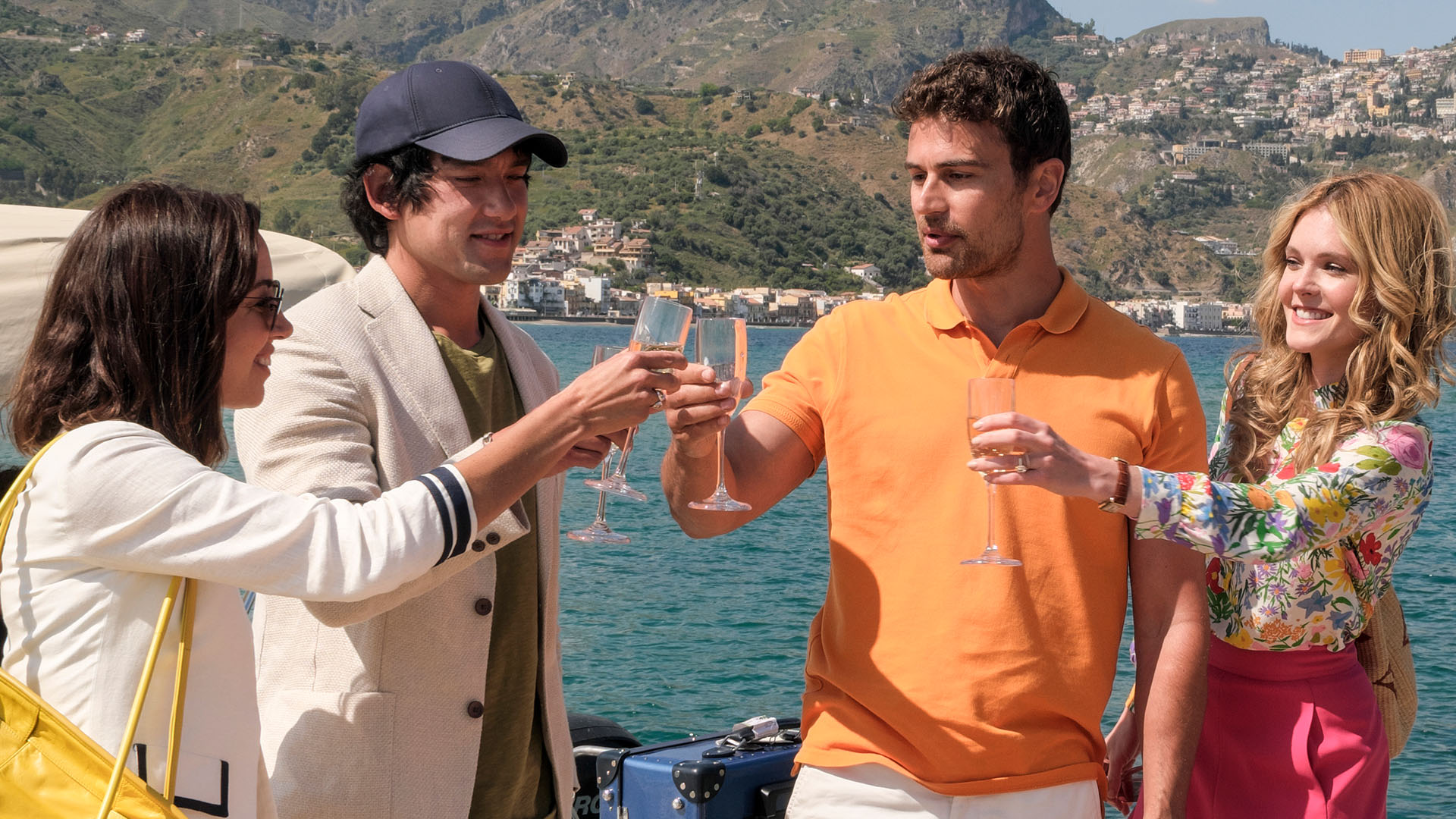
The show still revolves around scenes that pick apart current talking points, where one character is often biting their tongue. When mention is made of Plaza’s Puerto Rican heritage, she suggests Cameron and Daphne visit. It’s clearly a bit low on the poverty scale for them to even consider going there, and she knows it, and we sit in the resulting awkwardness.
As in season one, up-and-coming performers are given their shot alongside older pros, and the standout so far is Haley Lu Richardson, exuding warmth as Portia, the assistant to Jennifer Coolidge, who returns as Tanya, along with her beau Greg, to provide C-story comedy with a hint of tragedy.
It starts on familiar ground, but the more season two goes on, the less it focuses on wealth and class, and more on sex, and consent. That Sicilian sun seems to make these characters pretty horny, and White turns his attention to the way sex can be wielded in a similar way to money, and the power imbalances that can cause. As serious as it sometimes gets, there’s more than a hint of Italo-sex-farce to proceedings.
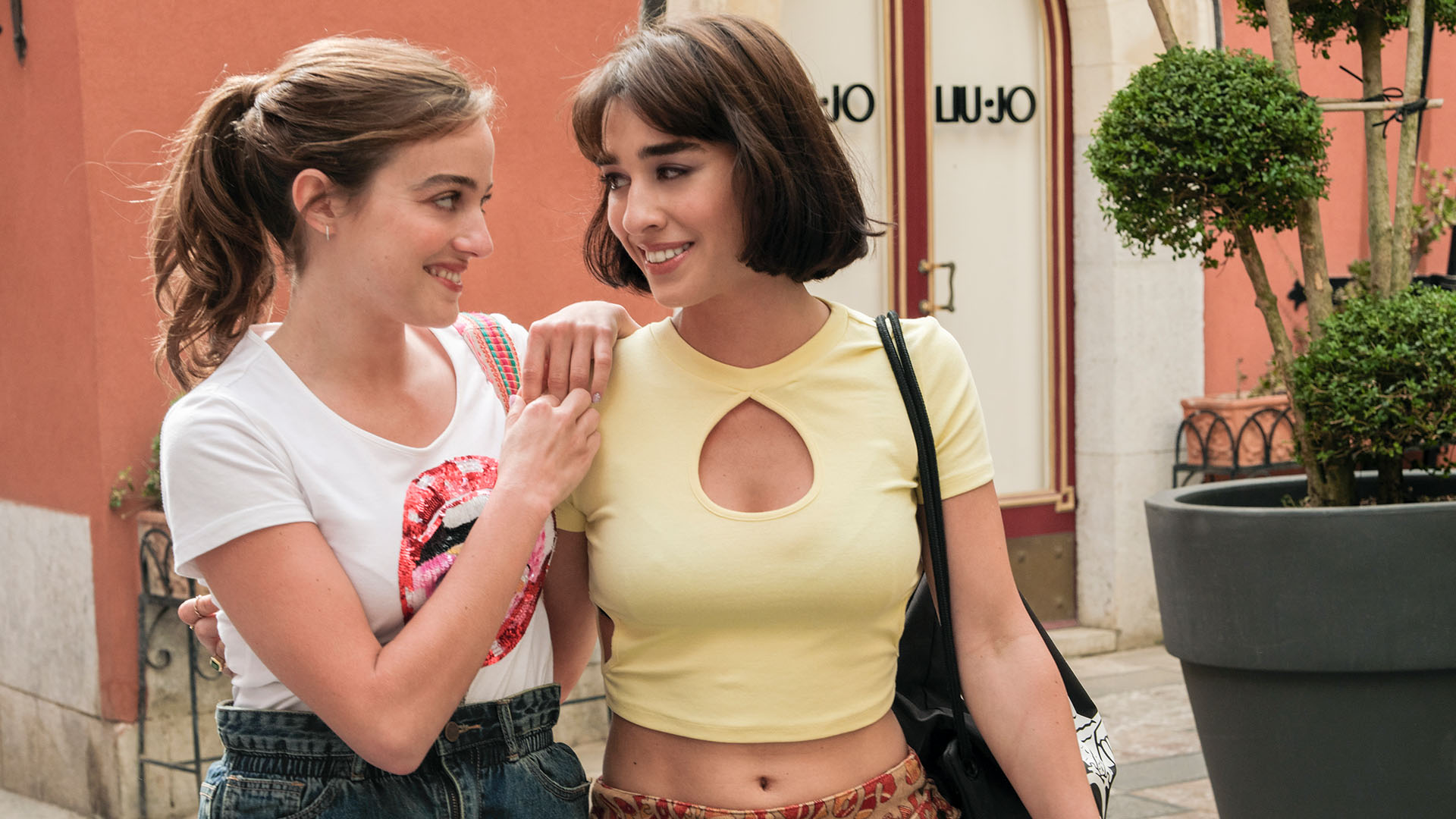
Mention must be made of Cristobal Tapia De Veer’s score, updated to include a Euro house beat under its slippery voice melodies—the ones that won him several Emmys for his work on the first season. De Veer has been using a similar technique since he scored Utopia for Channel 4 back in 2013, and it still plays dividends. His grasp of tone, teetering between flippant and something more sinister, is spot on.
And White is an obviously steady pair of hands, once again writing and directing every episode, toying with the audience in each barbed comment and charged altercation, daring us to want more time with these largely awful people. It’s mainstream entertainment that’s more subversive than you might expect, especially since at least part of its audience (and again, White himself), are the ones being satirised.
Once again the mystery of who is going to die (and how), isn’t a huge focus but lingers in the background, White deploying ominous establishing shots of churning seas to periodically remind us. The biggest difference this time is the lack of COVID restrictions, and his subsequent freedom to film outside the resort. You can feel the glee in capturing sumptuous shots of Italian scenery, architecture, and people. Large crowds of people, not all of them great, and some enjoying the kind of opulence most of us will never know.


